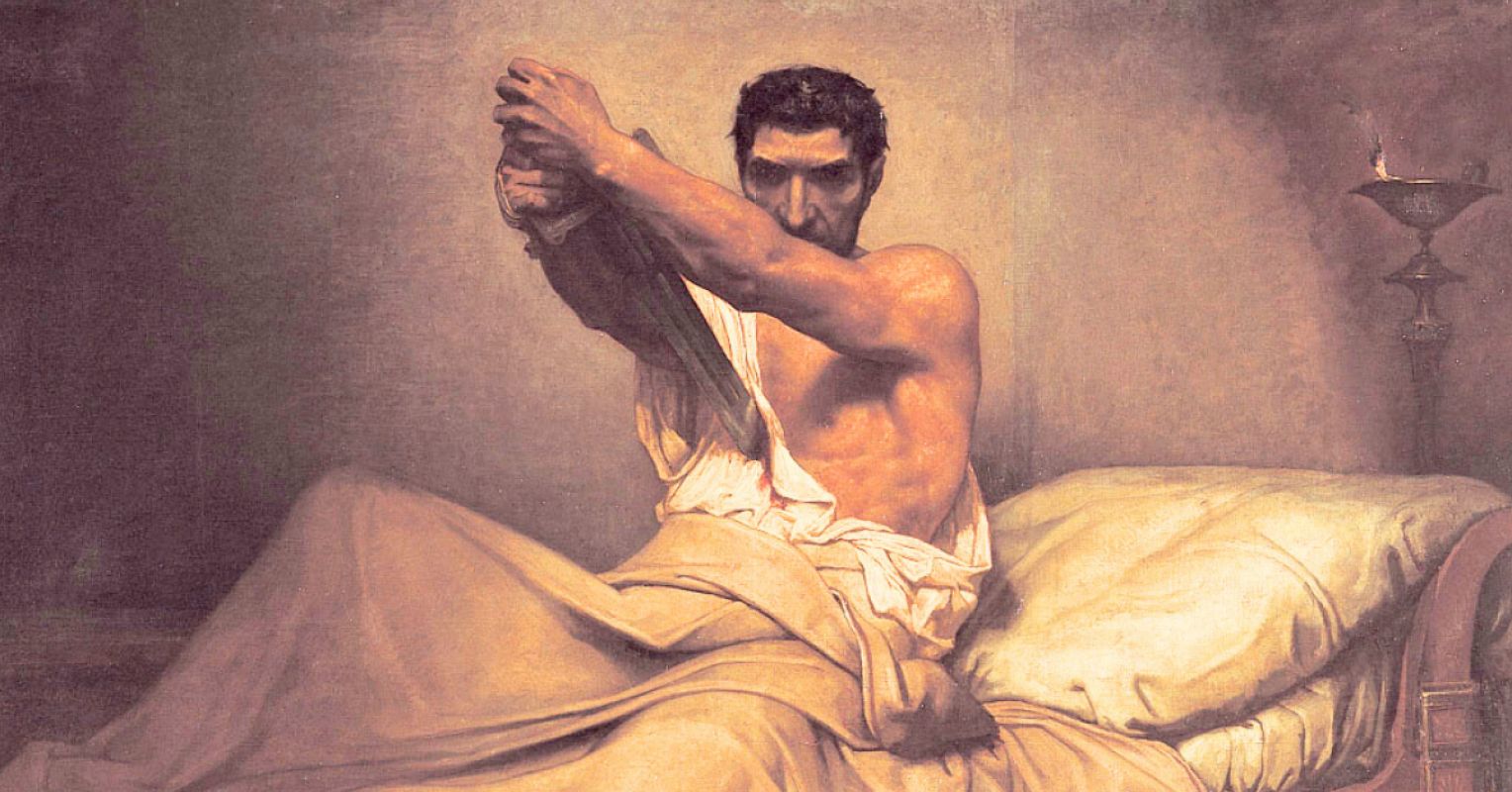
"It was by killing themselves that the likes of Cato and Socrates gave birth to their legends. When Cato is depicted in art, it is always in the act of stabbing himself. Had Socrates simply fled Athens, as he could have done, we today would be living in different minds. In the words of Seneca, "It was the hemlock that made Socrates great. Wrest from Cato his sword, his guarantor of liberty, and you take away the greater part of his glory.""
"After his defeat to Caesar in 46 BCE, the Republican general Metellus Scipio attempted to flee to Iberia to raise another army, but his ship, driven by a contrary wind, fell into enemy hands. Rather than surrender, Metellus impaled himself upon his sword. As he bled to death, he reassured his men that, "All is well with the general" [ Imperator se bene habet]. Relating this story, Seneca concludes, "It was a great thing to conquer Carthage; a greater thing to conquer death.""
Stoics acknowledged the potential nobility and glory in choosing death before dishonor, but they opposed suicide motivated by despair or dissatisfaction. The Stoic position treats death as a test and a final demonstration of philosophical commitment. Suicide becomes permissible when chosen rationally to preserve virtue, freedom, or dignity rather than from emotional despair. Historical exemplars include Cato, Socrates, and Metellus Scipio, whose self-inflicted deaths cemented reputations and conveyed moral resolve. Seneca framed death as a consecration of a life of philosophy and used the image of a storage jar to warn against allowing life's best parts to be drained away.
Read at Psychology Today
Unable to calculate read time
Collection
[
|
...
]